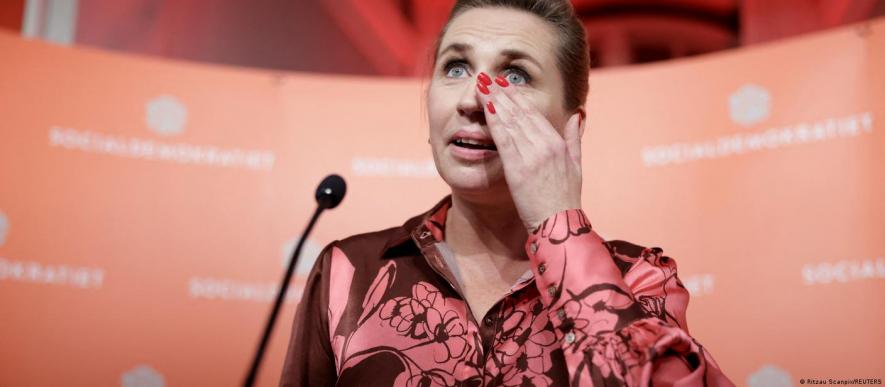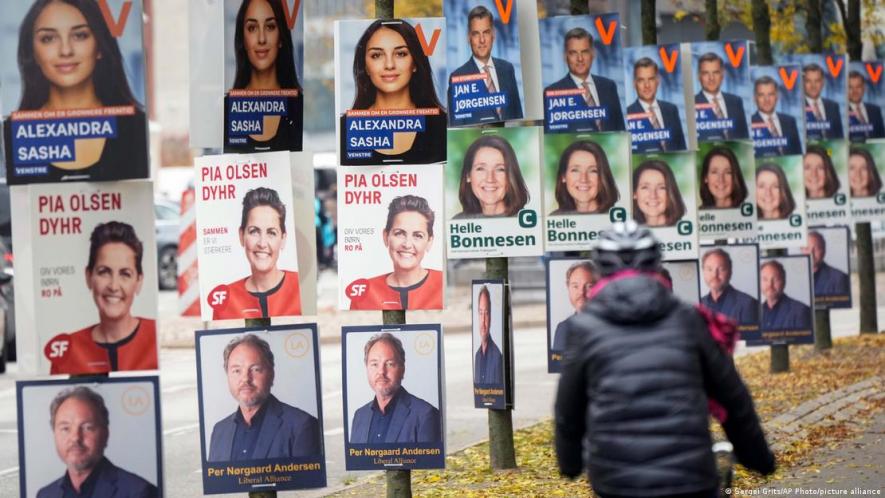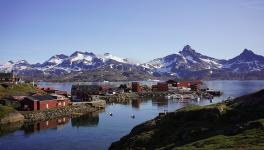Denmark: Ruling Center-left Bloc Wins Razor-Thin Majority

A preliminary full count of votes in Denmark, covering everywhere but remote Greenland, suggests that Prime Minister Mette Frederiksen's Social Democrats will remain the strongest party in the country.
Assuming the seats in Greenland and the Faroe Islands with results still outstanding vote for the center-left as broadly expected, Frederiksen's existing alliance would retain a tiny majority in parliament, with 90 or 91 of 179 seats.
However, the 44-year-old prime minister had called the early elections as her single-party minority government with backing mainly from a left-leaning bloc threatened to unravel, saying she was looking to set up a broader government that was more robust. She left this option open in her first comments as results came in.
"I am so thrilled and proud. We have secured the best election result in 20 years,'' Frederiksen told supporters early Wednesday in Copenhagen.
"It is also clear there is no longer a majority behind the government in its current form. Therefore, tomorrow I will submit the government's resignation to the queen," she said, also saying she would meet with other parties to explore future coalition options.

14 parties competed, 12 won enough votes to claim seats in the chamber
Venstre suffer major losses, Rasmussen's new Moderates emerge
Denmark's complicated political landscape will include 12 parties in the new parliament.
With four seats still to declare, Frederiksen's Social Democrats won at least 50 seats, a gain, making them the largest party once more.
The second force in Danish politics, the conservative-liberal Venstre party, suffered major losses — dropping to 23 seats from 43. Its leader Jacob Ellemann-Jensen said the poor showing was "first and foremost my responsibility."
Many Venstre seats were picked up by the new party formed by ex-Prime Minister Lars Lokke Rasmussen, a former leader of Venstre. Rasmussen's party, called Moderates, grabbed 16 seats.
Rasmussen was seen in particular as a potential kingmaker as his party currently sits outside of the two loose alliances of left-leaning and right-leaning parties, known as the red and blue blocs.
The 58-year-old told supporters after the vote that he also wanted Frederiksen to try to set up a government, but said he would not yet refer to her "as prime minister."
"I know for sure that Denmark needs a new government," he told supporters in Copenhagen. "Who is going to sit at the end of the table we do not know."
Other Venstre voters appeared to be migrating to more openly anti-immigration parties.
They include the Denmark Democrats, founded by former hard-line Immigration Minister Inger Stojberg earlier this year. The new party claimed 14 seats, making it the fifth power behind the Green Left with 15.
Voting triggered by 'mink crisis'
The election was sparked by the "mink crisis," which has embroiled Denmark since a government decision in November 2020 to cull the country's roughly 15 million minks because of fears about a mutated strain of COVID-19.
A court determined the decision was illegal in July, and a party supporting the Social Democrats threatened to topple the government unless fresh elections were held.
Prime Minister Mette Frederiksen was also seeking a broader and more stable mandate for her efforts to combat soaring inflation.
More than 4 million Danes were eligible to choose among 14 parties.
The campaign has been dominated by domestic themes that range from tax cuts to a need to hire more nurses. Financial support for Danes amid rising inflation and soaring energy prices because of Russia's war in Ukraine were also among key election issues.
Get the latest reports & analysis with people's perspective on Protests, movements & deep analytical videos, discussions of the current affairs in your Telegram app. Subscribe to NewsClick's Telegram channel & get Real-Time updates on stories, as they get published on our website.
























